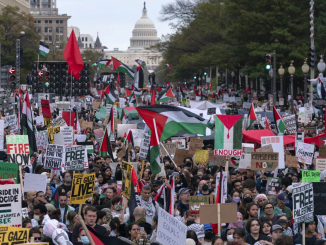
Since March 2025, workers across Panama have revolted against a new pension law that attacks their rights. The government’s response has been brutal repression. Panama’s leaders declared a state of emergency in June, suspended constitutional rights, and sent thousands of police to Bocas del Toro, a province in the northwest, known for its banana plantations and mostly Indigenous, working-class population.
The protests began when the government passed a law that will force workers to tie their savings to banks and foreign investors. This scheme promises higher profits for business but means less security for working people. Teachers, construction workers, and especially banana workers, long exploited by companies like Chiquita, have led road blockades, strikes, and mass demonstrations. The government has responded by arresting hundreds, shutting down communications, and even cutting off internet access in parts of the country.
This is not new for Panama. For over a century, companies like Chiquita (once United Fruit) and the U.S. government have seen Panama as a source of cheap labor and a place to control trade. The Panama Canal remains central to U.S. economic and military power. Even today, U.S. officials are pushing for greater control over the canal, demanding guarantees that U.S. warships can pass freely. This growing U.S. pressure is the backdrop to the government’s repression, a push to stabilize the country and protect corporate interests.
The repression we see now is part of the same story: Panama’s ruling class defending profits for themselves, for corporations and for the U.S. at the expense of its own people. The U.S. government, as always, stands behind these measures to keep the region under its influence.
We must not see the fight of Panama’s workers as something separate from us. Their struggle is part of the global fight against capitalist exploitation and imperialism. Workers in the U.S. should see this as their struggle, too, because the same system that tries to crush workers in Panama is the one that exploits people here. Only through international solidarity and collective action can we build a world where workers control their own future.




